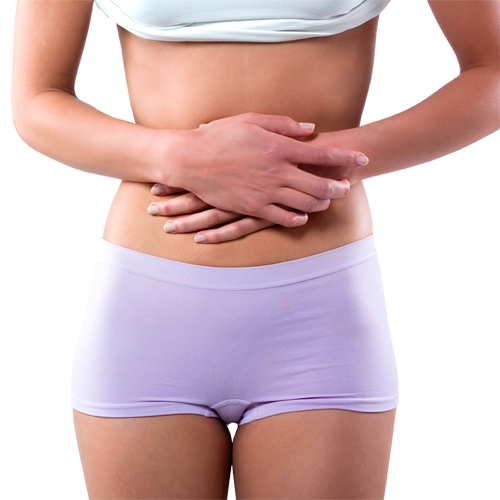If you suffer from Crohn’s disease, here are a few strategies, with or without pharmacological treatments, to help you manage your symptoms.
Crohn’s disease (CD) is characterized by chronic inflammation that affects the digestive tract, specifically the last portion of the small intestine (ileum) and the large intestine (colon). More rarely, the disease can affect other parts of the digestive tract. It affects both men and women and most often occurs in younger people (between the ages of 20 and 40). Once it develops, the disease occurs in flare-ups throughout an affected person’s lifetime, often interspersed with periods of remission.
What causes Crohn’s disease?
The exact cause and origin of the disease are still unknown. However, we know that it is an autoimmune disease, that is, the presence of certain inflammatory factors causes abnormal immune responses, causing inflammation. The potential triggers of this autoimmune reaction have not yet been identified with certainty, but could include viruses, bacteria, environmental factors, diet, stress, genetic factors and smoking. Several theories have been put forward, and it is thought that the disease is likely caused by a combination of factors.
What are the signs of Crohn’s disease?
Chronic inflammation in the digestive tract leads to the onset of one or more areas of inflammation, characterized by ulcers. Symptoms vary greatly from person to person and partly depend on the location and scope of the inflammatory lesions. While the onset of the disease is insidious and gradual in some cases, it is acute and comes on suddenly in others.
Classic symptoms of CD include:
- chronic diarrhea
- blood in the stools
- abdominal pain
- weight loss
- fatigue and weakness
- fever
- anemia
- anal tear, abscess or fistula
Crohn’s disease can sometimes spread beyond the digestive tract. For example, some people may have arthritis in the joints, skin lesions or inflammation in the mouth or eyes.
What are the available treatments?
Current treatments cannot permanently cure patients, although they can reduce inflammation and help better control the disease and its symptoms. Medical treatments vary depending on the section of the digestive tract involved, the severity of symptoms, complications and the response to treatment.
There are three main treatment methods: general or non-pharmacological measures, drug treatments and surgery.
Some general, non-pharmacological measures
- Get enough rest and sleep.
- Quit or cut down on smoking.
- Keep stress to a minimum.
- Choose a healthy and balanced diet.
Speak to your pharmacist before taking medication or a natural product. Some medications are contraindicated in patients with CD.
Drug treatments
Certain treatments are intended to quickly reduce symptoms of the disease during a flare-up, promoting remission. Others help to prolong the remission period. Therefore, it is sometimes necessary to combine more than one treatment.
- Anti-inflammatory drugs that act on the intestine (5-ASA).
These help to reduce the inflammation of the digestive tract. They promote disease management and help to prevent recurrences. - Corticosteroids (cortisone)
These are often used during a flare-up to promote remission. - Antibiotics
These are used to treat complications and infection. - Immunosuppressants
These are used to prevent the immune system from attacking the digestive tract. - Biological response modifiers (BRM)
They act in a very targeted way on certain components of the immune system. They are often used in moderate-to-severe cases of the disease, when it is resistant to other treatments or to help reduce the dosage of other drugs.
Surgery
Surgery is considered when all other treatments have failed or when there are complications, specifically in the case of abscesses and fistula or bowel obstruction. Surgery can allow a patient to go into remission or reduce complications.
Others treatments
There are other treatments for CD that are not described in this document. Ask your doctor or pharmacist about them.
In conclusion, CD is a disease that can be well controlled. Don’t hesitate to speak to your doctor or pharmacist if you have questions about Crohn’s disease or would like advice about treatments and the related side effects of the medications.

